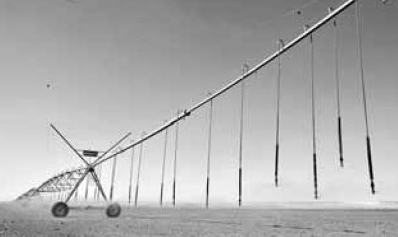
PepsiCo Foods (China) Co Ltd and the agriculture department of Ningxia Hui autonomous region officially started operation of a demonstration potato farm in Yanchi county today using the company's advanced techniques.
The 33-hectare farm endorsed by China's Ministry of Agriculture is designed to promote development of new technologies for potato agriculture with a focus on water management and best practices to assist rural households improve the yield and quality of their crops.
PepsiCo and the ministry signed an memorandum of understanding in 2011, when the two sides committed to making joint efforts to promote PepsiCo's best practices of sustainable farming in China's agriculture.
The primary objectives of the MOU are to increase yields and income to raise the living standards of Chinese farmers. The demonstration farm in Ningxia is a major milestone in the first phase of the MOU, said company officials.
Under the plan, PepsiCo will provide seed potatoes best suited for potato chips and send its agronomists to provide free technical training and support.
The transfer of knowledge will include the overall design of a sustainable agro plan, the preparation of machinery and land, and best practices in planting, irrigation, harvesting and storage.
In addition, PepsiCo will provide a complete set of technology solutions to raise farmers' awareness of food quality and safety at the source of the supply chain.
PepsiCo envisions increasing the scope of the demonstration farm to improve the environmental and resource efficiency of local communities.
According to Huang Quanfu, director of the Ningxia agricultural department, the region has become an important production base for seed and commercial potatoes in China while playing an important role in increasing agricultural production in the arid zone of central Ningxia and its mountainous southern region.
"We hope that by cooperating with PepsiCo, we can tap into the company's rich experience in potato agriculture to promote new plantation technologies and processes, raise the quality and efficiency of the potato industry and boost the income of local farmers," he said.
Bob Shi, vice-president of operations at PepsiCo, said that the support of the agricultural departments at various levels has helped the company make solid, encouraging progress in implementing the MOU.
"PepsiCo has world-class technologies in sustainable potato agriculture and we are excited to transfer our technical knowledge through the demonstration farm in Ningxia.
"We are enthusiastic about the opportunities this partnership provides for farmers and we hope the demonstration farm will achieve full success so we can introduce the model in other parts of the country and continue to contribute our share to the building of the new Chinese countryside," Shi said.
PepsiCo began operations in China more than 30 years ago. Today it has six foods plants in China.
Through its existing agriculture programs PepsiCo has been able to reduce the amount of water used in potato growing by up to 50 percent compared to traditional flood irrigation.
It has also been able to demonstrate potato yields of up to 45 tons per hectare in China, three times the national average of 15 tons.
In the past decade, thousands of farmers have benefited from leveraging access to PepsiCo's agricultural knowledge in China.





